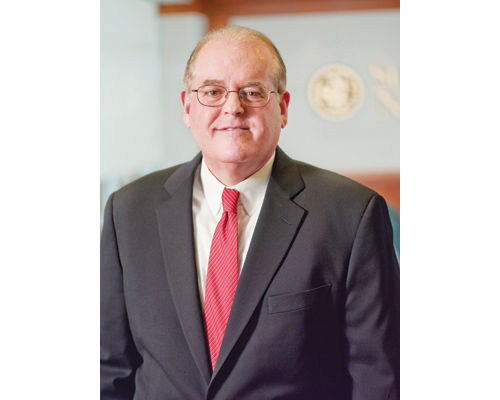Q&A with Suffolk County National Bank CEO

Suffolk County National Bank finished out the 2012 fiscal year strong, earning $2 million in the fourth quarter. That figure also marked a big turnaround, as the bank, run by Suffolk Bankcorp, had posted a $1.7 million loss in 2011.
Hired in 2012 as Suffolk Bancorp’s president and chief executive officer, Howard Bluver credits his new team and the bank’s loyal customers for the earnings reversal.
Q. Suffolk made a quite a turnaround last year, particularly in the fourth quarter. What sparked that?
A. In 2012 we transformed our senior management team. They all have a lot of industry experience and are very industry savvy. So I think with the experience of that team we were able to do the turnaround much quicker …because they have been through it before.
The major strategy we used to sort of clean up our balance sheet was a bulk sale of non-performing loans combined with a capital raise. Suffolk was very concentrated in large commercial real estate development projects, which sort of went bad at the same time, and so when we sorted through the portfolio to figure out what we wanted to do, we isolated many of those larger relationships and chose to sell them in the bulk sale, so most of the under-performing loans that we sold were in the commercial real estate space.
Because institutional investors liked the management team and the history, we were able to raise more capital than we thought on much better terms than we thought. When you sell the loans quickly for much higher prices than you think and you raise more capital than you think you were going to be able to at higher prices, you can do things much quicker.
Q. How will the new loan-production office in Melville help promote growth?
A. It’s a logical expansion strategy for us. We’re already all throughout Suffolk, concentrated on the East End. Now, with that office, we will be able to concentrate more on western Suffolk and then into Nassau County… The main growth strategy here is to expand west, diversify our product set away from large concentrations on commercial real estate and then grow the loan portfolio over time. We were able to start doing that in the fourth quarter of 2012.
Q. How is competition among other banks?
A. It’s intensely competitive and relentless. All banks are very hungry for assets, for loans that generate income. So every deal that we have, it’s highly competitive. And we’re fighting with other institutions, so it’s really tough out there.”
Q. What sets SCNB apart from other community banks?
A. What we have going for us that most institutions don’t is we have a very low funding cost … because we’ve been in Suffolk County for 120 years we’ve developed loyal customers who have been with us thorough thick and thin, and many of them have checking accounts with us that are non-interest-bearing.
So 43 percent of our total deposits in our bank are in the form of non-interest-bearing checking deposit accounts, and when you have that high a percentage it means the amount of interest expense you are paying out to depositors is very low … In the fourth quarter, for example, the total funding cost we had to pay depositors for their money was much less than 1 percent, so that means that since our cost of funds is so low we can be very competitive on pricing when it comes to loans.
Q. Why were you the right man for the job?
A. When the bank got into trouble before 2012 … they decided to hire a consultant, and the consultant they hired was me. In the course of that consulting work, I got to know the board and the bank and its strengths, and the board got to know me and we sort of hit it off very well.
At the end of the consulting period, that’s when the board came and asked me to be CEO, and because I was here full-time as a consultant for six months I was able to hit the ground running. I didn’t have to learn anything; I had already learned what needed to be done so literally on Day 1 I knew exactly what I wanted to do. So I think I was uniquely positioned because of the consulting experience.



